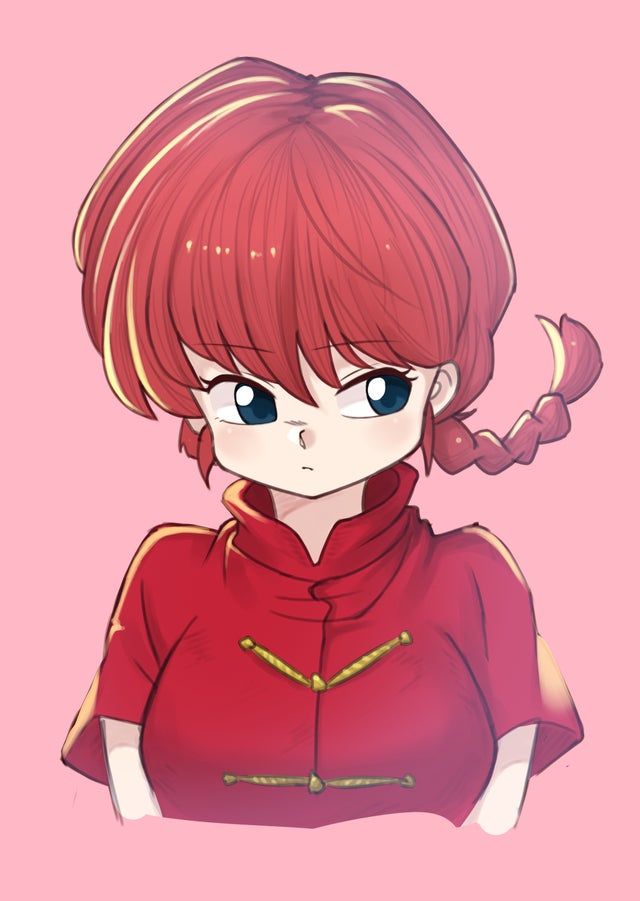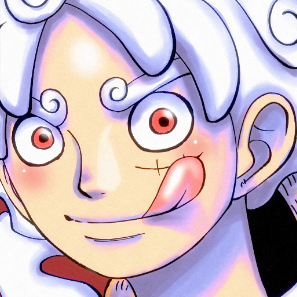We can see the cracks starting to show in US military and economic hegemony. To be sure, they’re still the most powerful country in the world, but they can obviously no longer take on the rest of the world combined like they could in the 90s.
But more insidiously, the US still seems to be the hegemonic hyperpower in terms of cultural output. Even countries that are geopolitically at odds with the US happily and ravenously consume its art, entertainment, and literature, and to a lesser extent, those from loyal vassals of the US such as Japan, south Korea, and Western Europe.
It’s not just due to reach. I feel that cultural output from the US (and vassals) is genuinely more creative, technically advanced, complex, innovative, and prolific than cultural output from the rest of the world. As someone of Chinese descent who doesn’t strongly identify with American culture, this weighs on me heavily.
I’ll compare American and East Asian cultural output since that’s what I’m most familiar with.
Hollywood cinema is obviously the gold standard the world over. American films such as The Matrix, Blade Runner, and Fight Club are full of symbolism, innovative cinematography, and complex narratives. Korean films such as Snowpiercer, Parasite, and Oldboy are not far off. In comparison, the top Chinese movies such as The Wandering Earth 2 and The Battle at Lake Changjin are rather simplistic and don’t necessarily have a lasting cultural impact, even in China.
Chinese TV is pretty good, with hits like Nirvana in Fire and Reset. But there has been no Chinese series with the wide reach, critical acclaim, innovative and sophisticated narratives, and lasting cultural impact of American series like Breaking Bad, Star Trek, The Sopranos, and Friends, or Korean series like Squid Game. The average Chinese person has heard of Friends, but only a vanishingly-small number of Americans have heard of Nirvana in Fire.
Chinese pop music is largely samey-sounding ballads. Listen to one of the songs by Li Ronghao or Joker Xue, and it could’ve been released today, a decade ago, or two decades ago. In contrast, Western and Korean pop music are constantly evolving and trying new things. Even more creative Chinese artists like Lexie Liu, Hyph11e, South Acid Mimi, and Absolute Purity are largely following established trends and not really setting new trends. Chinese music has no answer to jazz, rock ‘n’ roll, hip-hop, and house. The most identifiably Chinese music simply uses traditional instruments, but there’s nothing particularly groundbreaking or creative about mashing folk instruments with existing pop music. K-pop, J-pop, and even LatAm, West Asian, and Indian pop have immediately identifiable sounds, whereas most C-pop sounds like it could’ve been made anywhere at any time. C-pop has little appeal even in places like Hong Kong. If you look at the HK charts, they’re dominated by foreign artists like NewJeans Jungkook, Yoasobi, and Taylor Swift, with a small handful of HK and Taiwanese artists, but not a single mainland artist. That seems really shameful to me.
Japanese manga and American comics are considered the gold standard, with Korean manhwa a solid third. Meanwhile, Chinese manhua suffers from amateurish art, clunky pacing, unlikeable and selfish main characters, and boilerplate, tropey plots. If you thought isekai was overdone, wait until you see the endless cultivation stories in manhua. It’s kind of embarrassing, really.
It’s a similar story with literature, video games, and animations.
So, why is there such a large discrepancy in the quality of cultural exports coming from the US, Japan, south Korea, and Western Europe vs the rest of the world? Is it simply that these countries are richer so more people have the opportunity to pursue art, and studios have larger budgets? Is art like technolgical advancement in that you have to build up the know-how from the ground up? Or is there some cultural or governmental aspect in countries of the International Community™ that genuinely fosters creativity?
People often talk about this in terms of soft power, but imo what’s even more important is cultural self-confidence. If domestic art or art from friendly cultures is good enough to satisfy one’s own needs instead of having to import everything from countries that want to subjugate your own people, I think that would greatly boost collective well-being, sense of identity, and mental health.
On a personal note, this has been a nearly obsessive worry of mine for the last year or so. I’ve tried talking to a therapist about it but they just suggested that I try to stop identifying as Chinese and start identifying as American. Not very helpful advice. I don’t really have anyone to talk to this about, so I hope I can start a discussion here.
Why does Amerika seem like the dominant culture still? Cause they’re stealing from New Afrikans and our creativity, all while having a monopoly over worldwide media. There’s a lot of money that goes into the propaganda machine and that’s a part of it.
They steal from us and use us to push their capitalist propaganda on the rest of the world.
This is the answer, literally every western musical genre outside of classical and bluegrass was heavily or solely derived from Afro-Americans
Also Afro-Americans weren’t the main tributary of bluegrass, but they’re part of that one too on a foundational level. The banjo was an African diaspora invention, seemingly based on a West African instrument, and the vocal style took from blues and other extremely Afro-American musical traditions (field hollers; black hymnal)
Yeah I agree here. Why do you think Black Americans have been so creative, especially in music?
I think it’s just revolutionary spirit. I have no other real explanation for it. We’ve had to survive being colonized for so long it’s just been a matter of making the best of it. I’d love to see the kinda of art we could make when we aren’t under survival conditions.
China has no interest in exporting its culture, or catering to a foreign audience. This has always been the case for centuries.
We have our own internet platforms that are mostly insulated from the rest of the world. A popular video on bilibili can easily get several times the view count than that of a popular video on Youtube, and yet the vast majority of the world will never have heard of it.
I think a lot of this has to do with the failure of the Cultural Revolution, which set in a conservative trend where the national policy has become averse to attempting anything that significantly deviates from the status quo. Instead, the cultural richness of present day China is drawn from the vastness and depth of its historical past, a civilization that spans over several thousand years.
For a country with nearly 1.4 billion people, it is far easier to make people identify with their cultural past and use that as a national unity project. The last thing the leadership wants is something that retreads the madness of the Cultural Revolution, even if it comes at the cost of stifling cultural innovation.
The decline of Western imperialism is going to lead to the rise of regional blocs in the form of multipolarity. The cultural hegemony of the US will slowly give way to an reinvigoration of local cultures as these countries, bound together by regional ties, began to reassert their sovereignty. You’re not going to see Shanghai as the world’s sole cultural center that displaces the role of New York, but instead the emergence of multiple regional cultural centers across the world.
I actually agree with you on this one that it’s a very important issue and one that needs to be corrected sooner than later. The revolution will be exported culturally in the end.
Is art like technolgical advancement in that you have to build up the know-how from the ground up?
I suspect that this is the case, as the end products we see are not the result of a single artist, but of the industry behind it. Even discovering and nurturing talent is a pipeline that takes decades to develop. I see raw quality when I read some Chinese webnovels (Release That Witch, Lord of Mysteries) but the lack of experienced editing is glaringly obvious. Japanese mangakas like Toriyama had talented editing team behind him, but there is no Chinese equivalent currently. This gap becomes greater when it comes to bigger productions with more moving parts such as music or film. These structures take a long time to mature, and China didn’t have enough time to develop them yet.
I think you’re underselling Chinese videogames though or you’re discounting mobile games. I’d say that half of quality mobile games come from China. The Chinese esports scene is much more developed than the West and I consider it to be a cultural output as well. Not so coincidentally, these are industries with a much shorter history than manga or film.
You’re right, I wasn’t considering mobile games. Got any good ones that aren’t just cash grabs or ports of existing IP?
I’m aware that there are solid games with some connection to China, such as FTL: Faster Than Light and My Time at Portia. There’s of course also Genshin Impact and the upcoming Black Myth: Wukong, but I find it hard to be excited about them anymore since my SO shat on them really hard, the former for “being a rip-off of BoTW” and the latter for “being a rip-off of Elden Ring and Dark Souls and using unoriginal, centuries-old IP.” TBH I think they have a point.
I was gonna make my own top level comment until I saw this. I think a lot of what you mentioned in the post is mostly a symptom of how cultural hegemony works, rather than Chinese people being uncreative or not knowing how to do artistic expression. The perfect example is Genshin - the story is rich and intriguing, although simplified for a younger audience. The music, graphics, and scenes are honestly some of the best I have seen in video games. From a technical perspective, and as cliche/delusional as this sounds, I think this is the pinnacle of video games. Working within the constraints of mobile devices, they created this massive world with gorgeous graphics and used “photorealistic” techniques that even AAA games don’t use, all while not compromising on the unique art-style. I think the gacha format and it being a BOTW “clone” do limit it in the dialogue/gameplay department, but outside of these two facets it demonstrates “high-level art”. There are scenes in the game that can be considered “cultural export”, like the Divine Damsel of Devastation (Spoilers!) which exposed millions of western players to Chinese Opera for the first time and practically resurrected it, and we will probably see more with the upcoming Lantern Rite character Ga Ming for CNY. In the west people simply do not get to see this in other forms of media because of American hegemony, but it exists, and breakthrough games like Genshin demonstrate it.
just wanna also add that kpop has a whole subsphere of chinese artists
I found a YouTube link in your comment. Here are links to the same video on alternative frontends that protect your privacy:
Really great read, this whole thread.
I think most other things I thought to say have been voiced thoroughly. I just have one more (which has been touched on too but anyways):
Is there perhaps a subconscious anxiety here: that socialism, aka a materially better society, a society where people suffer less, makes life a little more boring? That pain = good art?
I know I have this fear, sometimes.
And I think this is a truly late-stage Western way to think. Bad = Bad, but Good = Secret Bad, if not Good = Even Worse. We are so used to good things here being bad things in disguise, we have an inherent distrust of good things. I think it lends to Sinophobia of the Chinese project, and ideas like “Heaven is a place where nothing ever happens,” or similar ideas that are essentially cope talk where suffering = cool, or suffering = indispensible. As fascism tells us, after all, “to live is to suffer.”
I know I have feared my life ever improving because the idea that I would never make good art again is intolerable.
But, deep in my heart, and deep in my mind, I know this isn’t true. Making HAPPY art that is also GOOD may take some unlearning and re-learning, but it is possible. If it isn’t, then reality itself is grim, and I refuse to believe that until socialism has had its fair shake with the human psyche.
I remember being very disturbed at myself once, when writing answers to a fun little 50 music question Tumblr prompt. One question was “what is a song that makes you happy?” For every other question, I debated between 2, 4, 10 different songs. For this question, I could not think of a single one. But, is this because the only good music is painful music, or because I have a painful life in a painful society and so, naturally, pain is something I relate to the most? And that there is an absence of music that is both happy AND sincere, talented, and emphasized?
Some thoughts.
That pain = good art?
i’m an artist, and i can say with utmost confidence, that this is utter bullshit. I make much better art when im comfortable and happy.
That pain = good art?
Most art comes from rich playboys that are sons of rich playboys. Yea even the good bits. Pain and trauma just make it harder to do art, because now instead of drawing my brain is shitting on me about past events. Most of the pain artists talk about is just afluenza or like their lover leaving them for sucking
Even after we have highly developed communism, there’s going to be plenty of pain to go around from physical wear and tear, loss of loved ones, family drama, romance, loss in competition, etc. so I think we’re safe even if your premise holds true.
Of course the “top grossing movie of 2020” made by China is going to look bad compared to a classic of US cinema. But can you name any films from that same year that the US made that have had the same cultural impact as something like The Matrix or Fight Club?
You’re comparing China’s present average to the west’s “best ever” so of course it’s going to look bad by comparison. I’m also not sure what you mean by western pop music being “experimental”? It all sounds like the same made by committee plastic manufactured crap to me. Are you comparing more of an indie breakout hit sort of song that gets popular because it sounds different to the mainstream in the west to the regular mainstream in China?
It really sounds like you’re looking for reasons to dismiss Chinese media and reasons to uplift western media unnecessarily here. I just started watching a drama series, Minning town, 山海情, and it’s not “perfect” or anything, but it’s completely unlike anything I would ever expect to see in western media. Maybe instead of trying to measure things by “cultural impact” or whatever, you could try reframing it, and think about what unique things a culture can create?
The #1 thing that determines how popular something gets in the west is how much money the rich think they can make off of it. The west’s “culture” at this point is largely artificial, created by the rich to sell distractions to increasingly destitute masses of people. China’s media landscape is radically different because they don’t need to distract their populace with mindless entertainment.
Also, as others have said, a lot of people around the world speak English, and the anglosphere in particular consumes media at an appalling rate. So it’s hardly surprising that western media is the most prevalent in the world just from that alone.
I wasn’t intentionally naming recent Chinese movies, I just happen to think the best (mainland) Chinese movies of all time were made in the last few years. That at least gives me some hope that they simply needed some time to develop the expertise. And yeah, I’m well aware that for every The Matrix there’s a couple dozen Justice Leagues.
Indeed, most top 100 music is derivative crap everywhere, including the US. But every year there are a few hits that stand the test of time like Poker Face and thank u, next. And I don’t mean to say that US pop music is truly cutting edge stuff. Rather, what happens is that there’s always cool new stuff brewing underground, and in a few years either the formerly underground artists make it big or their sounds set off a trend that’s eventually picked up by established artists. That’s how you end up with a bunch of trends or waves in music like deep house and trap heavily influencing US pop music in the 2010s. By contrast, it seems like underground music in China stays underground, and in the first place the sounds were invariably originally imported. Like there are by all means good sounding Chinese non-mainstream artists like Omnipotent Youth Society, 等一下就回家, Ice Paper, PO8, GriffO, and Absolute Purity, but their music is based on existing, imported genres like hip-hop and prog rock and their music has virtually no influence on the most popular Chinese pop artists like Li Ronghao, who just constantly spit out generic tunes.
I do appreciate that Chinese media can take a different perspective than Western media. Propaganda pieces like Minning Town can be a good watch and are really wholesome. Even organic works like The Wandering Earth obviously are made with different worldviews. I do think this is one unique strength that can be leveraged that doesn’t just try to copy Western stuff or rehash tired palace drama cliches, and I’m glad to see it appear more often in recent works.
I think there are many great ideas coming from Chinese TV and cinema, they just need to work on execution. Take the Tencent adaptation of Three Body Problem, for instance. Huge potential, and the IP is imo one of China’s precious jewels. But they really did it dirty with the low budget. It was mostly just people standing around and talking. A single episode of the (whitewashed, de-sinicized) Netflix adaptation has a bigger budget than the entire Tencent series. I would go as far as to say that it would’ve been worth it for the government to subsidize it to raise the production value.
Other people have mentioned the music stuff in far more detail than I could, so I’ll leave that discussion to them I think.
The biggest difference I would say between western media and Chinese media is that Chinese media is open about their agenda, Minning Town is unapologetically pro-goverment, which of course makes westerners hate it because it is “propaganda.” But at the same time, western marvel movies and things will be even more unapologetically pro-US government and Americans and Americanised people around the globe will just accept that as a given and won’t even consider the most blatant US propaganda as propaganda. I personally find this more unnerving than anything else, I don’t like a lot of western media for how blatantly it shoves a US state approved message down people’s throats and because that is just the “default” for western media, no one ever questions it.
Yeah, I agree with you on the Three Body Problem, the actors were fun, but yeah, the budget really held it back. Though I’m not sure that throwing money at the problem would automatically fix it. Others in this thread have mentioned how the US had a headstart both in industry and cultural output at the end of WW2, and a similar idea applies here. If the US could get China to spend billions of dollars in producing media (that may or may not flop) then they can push them into a kind of “media quagmire” similar to the Soviet war in Afghanistan, except with film production instead of weapons production. Trying to take the heart of capitalism on an equal financial footing is doomed to failure, as they have effectively limitless resources at their disposal and a huge head start when it comes to creating media.
I think it’s important to remember- alongside the real issues of censorship stifling creativity, the China of today is basically incomparable to the China of even 20~ years back- hell, I’d even say 10 years back. China has not been a “developed” country for long. These industries need time to further develop, and they need time to also gain exposure abroad.
Of course, the west has had a massive advantage culturally (and in every other aspect)- this is the nature of our post-colonial world, where western culture, technology, religion, ideology, etc. has been exported for centuries, sometimes through genocidal force, and other cultures and societies were impoverished, degraded, and humiliated. These things take time to overcome, and that China has made such strides already is if anything, very reassuring to me.
On a personal note, this has been a nearly obsessive worry of mine for the last year or so. I’ve tried talking to a therapist about it but they just suggested that I try to stop identifying as Chinese and start identifying as American. Not very helpful advice. I don’t really have anyone to talk to this about, so I hope I can start a discussion here.
This admittedly sounds really familiar though. Did you post it on (a certain reddit sub)? Anyways, that therapist was no good.
Chinese TV is pretty good, with hits like Nirvana in Fire and Reset. But there has been no Chinese series with the wide reach, critical acclaim, innovative and sophisticated narratives, and lasting cultural impact of American series like Breaking Bad, Star Trek, The Sopranos, and Friends, or Korean series like Squid Game. The average Chinese person has heard of Friends, but only a vanishingly-small number of Americans have heard of Nirvana in Fire.
Did you know that Friends is a ripoff of the Black TV series Living Single?
If you didn’t then you are part of the problem and you don’t even know it
The problem has little to do with “media quality”. It has to do with language-based social circles.
- Whites watch white media
- Whites are fluent in english
- a global group of multinational disorganized Africans and Asians are learning english
naturally, this means they speak with whites, spend time on white social media sites, and pick up white media tastes and memes
almost nobody learns Mandarin, so this same thing never happens in reverseIn my opinion the main problem is still just material. Material conditions are still better in the West than in China, so there’s still a motive to learn English.
Also since China is a Western foe, they’ll never even allow Chinese pop culture to rise within their social media bubbles anyway. And since 95% of communication takes place on those bubbles, China is kinda just SOL for now (but the problem will improve as material conditions in China improve)
good post, in my opinion what we’re dealing here with is time and language. Others already pointed out that art and entertainment is an industry like any other and those take time to develop, however to me the main obstacle is mostly language. I like chinese, I genuinely like how it sounds, unfortunately it’s a monolithic task to learn it, and very few people in the west have the determination/interest to do so (me i’m just lazy and i have a peanut brain). This is a shame because despite what you seem to think I’d argue that chinese culture is wonderful and rich, yet a lot of it is locked behind tiny symbols my stupid brain can’t figure out.
All those things will naturally converge over time. More people will learn chinese, china will develop an efficient entertainment industry now that its achieved itself as a modern and prosperous state, and more and more people will start to consume chinese media. I also unironically think that chinese shitposting is far superior to the west, and genuinely believe in the meme that the great firewall is there to protect us westerners from powerful chinese posters lmao
deleted by creator
The Wandering Earth 2 is not simplistic and you’ve probably missed a lot since you aren’t fluent in the language, because you can’t capture the nuances yourself and you aren’t able to go into Chinese-langauge spaces to see what other people have found. I also have no clue who the two people you mentioned in the pop music bit are, but idk why you are talking about them instead of hugely popular musicians like Phoenix Legend or Li Yuchun, both of whose works very much have evolved throughout their careers.
There are a lot of structural factors when it comes to Chinese cultural products having less impact in the imperial core. I think you discount the lack of exposure. Even if there was some Chinese media that you personally feel is innovative blah blah, do you think the imperial core would let it get popular? So idek why that is a gripe that you have.
You have valid critiques (and people in China complain about capital being lazy and not producing more creative films and tv shows), but a lot of this post sounds like lack of cultural self-confidence on your part, as well as viewing Chinese media through a Western lens/palate tbh.
The Wandering Earth 2 is not simplistic and you’ve probably missed a lot
Probably. I’m definitely not too knowledgeable about cultural allusions and stuff, and I basically relied on the subtitles. I must admit there’s a gap there. Westerners often praise Liu Cixin for having great ideas and plots but criticize him for having flat characters and uninteresting dialogue. Idk how much the translation has to do with this and how much this even affects the movie since it’s only loosely based on the short story though.
I also have no clue who the two people you mentioned
李荣浩 and 薛之谦, their top songs have 100-200 million views on YouTube, the most out of any Chinese artist. They’re incredibly popular in Taiwan, Singapore, and the US amongst ethnic Chinese. I’d be surprised if you haven’t heard of them.
Phoenix Legend or Li Yuchun
Mind sharing some recommendations?
I think you discount the lack of exposure
Yeah I’m not denying that this is major factor. I think The Wandering Earth 2 should’ve been as popular as any Hollywood blockbuster. But I do have my reasons why I think it’s “merely” a very good film instead of a timeless cinema classic. Perhaps like you said it’s because I’m missing stuff due to the language barrier.
a lot of this post sounds like lack of cultural self-confidence on your part
True, that’s what I hope to cultivate some day.









